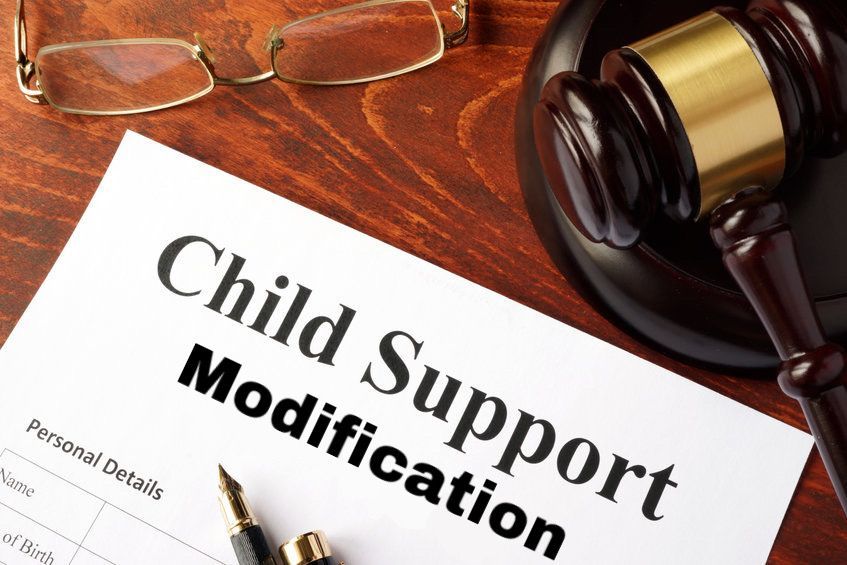Does Child Support Include Daycare Costs? Complete Guide
No, basic child support payments usually do not include daycare costs. Daycare expenses are typically treated as separate costs that get added on top of regular child support. However, most courts consider daycare a necessary expense and include it in the total support arrangement when a parent needs childcare to work or go to school.
This guide will walk you through everything you need to know about child support and daycare costs. You'll learn how these expenses work, who pays for what, and what steps to take if you need help with childcare costs.
Why Daycare Costs Are Usually Separate From Basic Child Support
Basic child support covers your child's everyday needs. This includes food, clothes, a place to live, and school supplies. Courts calculate these amounts using guidelines that look at both parents' income.
Daycare costs work differently. Not every family needs daycare. Some parents work from home. Others have family members who help watch the kids. Because of this, courts treat daycare as an extra cost that only applies when it's actually needed.
Think of it like this: every child needs food and clothing, but not every child needs daycare. That's why these costs are handled separately in most states.
What Basic Child Support Actually Covers
Your regular child support payment takes care of:
- Food and groceries
- Clothing and shoes
- Housing costs (rent or mortgage)
- Utilities like water and electricity
- Basic school supplies
- Regular medical care
These are the everyday costs of raising a child. Child support is designed to make sure both parents help pay for the child's basic needs, including food, clothing, and shelter.
How Courts Handle Daycare Expenses
Most states add daycare costs to the basic child support amount. The parent who pays child support usually pays a share of daycare expenses too. This share is based on how much money each parent makes.
Here's a simple example: If one parent makes $60,000 per year and the other makes $40,000, they have a combined income of $100,000. The first parent makes 60% of the total income. That parent would typically pay 60% of the daycare costs.
In Rhode Island, a parent will be ordered to pay approximately the same percentage of daycare that matches their percentage of the combined income of both parents. Many other states follow this same approach.
When Daycare Gets Added to Child Support
Courts typically include daycare costs when:
- A parent needs childcare to go to work
- A parent needs childcare to attend school or training
- The daycare provider is licensed and professional
- The costs are reasonable for your area
If the parent with custody needs to put the children in daycare due to their employment, the costs will usually be added to the basic child support payment.
Different States Have Different Rules
Child support laws change from state to state. What works in one state might not work in another. Let's look at how different states handle daycare costs.
States That Include Daycare in Support Calculations
Texas law considers child care expenses that either parent pays to keep working when determining child support amounts. The state looks at daycare as part of the bigger picture when setting support payments.
California takes a similar approach. California Family Code Section 406(a) says courts must consider daycare costs needed for the parent with custody to continue their education or work. This helps make sure the working parent doesn't get overwhelmed by childcare bills.
States Where Daycare Is Handled Separately
In Illinois, daycare costs are not directly considered when child support gets calculated. These expenses are completely separate and need to be handled separately. Parents in Illinois still have to share daycare costs, but it's not part of the basic support calculation.
Some states use both methods. Parents can choose to include expected daycare costs in the monthly support payment. Or they can keep it separate and split the actual bills as they come in.
How Much Do Parents Actually Pay for Daycare?
Daycare costs have gone up a lot in recent years. Understanding these costs helps you plan better and know what to expect.
National Daycare Costs
The national average price of child care for 2024 was $13,128 per year. For a married couple with children, this takes about 10% of their median income. For single parents, it takes about 35% of their income.
These numbers show why daycare is such a big deal in child support cases. Many families struggle to afford quality childcare on one income.
The cost of daycare for two children rose to $28,168 last year, which is about 35% of median household income in the United States. That's as much as many people pay for housing.
Why Daycare Costs Keep Going Up
Between January 2020 and September 2024, the price of daycare and preschool rose about 22%. Several factors drive these increases:
- Higher wages for childcare workers (they deserve fair pay)
- Increased safety and health requirements
- Better educational programs
- Rising costs for food and supplies
- Higher insurance and licensing fees
Child care prices grew 29% from 2020 to 2024, which is 7% more than overall price increases during the same time. Daycare has gone up faster than most other expenses families face.
Who Pays for Daycare in Child Support Cases?
Both parents usually share daycare costs, but not always equally. The split depends on several factors.
Income-Based Splitting
Most courts divide daycare costs based on income percentages. If you make 70% of the combined income between both parents, you'll likely pay 70% of daycare costs.
This system aims to be fair. It recognizes that parents with higher incomes can afford to pay more. At the same time, it makes sure both parents contribute something.
Work-Related Requirements
Courts consider child care expenses that either party pays in order to maintain work when determining support. This is an important rule. You can't just decide to use daycare for fun and expect the other parent to help pay.
The daycare must be necessary because:
- You have a job during those hours
- You're attending school or training
- You have a medical condition that prevents you from providing care
- You're actively looking for work
If you stay home and could watch the kids yourself, courts probably won't make the other parent pay for daycare.
Reasonable Cost Standards
Childcare costs cannot be more than an amount the court believes is required to provide quality care from a licensed provider. Courts want to make sure daycare costs are reasonable.
What does "reasonable" mean? It depends on your area. Daycare in big cities costs more than in small towns. Courts look at average prices in your location. They also consider the child's age (infant care costs more) and special needs.
Getting Your Daycare Costs Added to Child Support
If you need help paying for daycare, you should address this early in your child support case.
Start During the Initial Support Case
The best time to deal with daycare costs is when child support first gets set up. It's important to have foresight during child support cases to cover topics like daycare that may raise issues in the future.
Bring up daycare needs right away. Tell the court or mediator:
- Where you work or go to school
- Your work schedule
- Estimated daycare costs
- The name of your daycare provider
Don't assume daycare will automatically get included. You need to specifically request it.
Required Documentation
To get daycare included in child support, you'll need proof. Courts want to see:
- Written invoices or bills from the daycare provider
- A statement showing weekly or monthly costs
- Proof of payment (receipts, canceled checks, bank statements)
- Your work schedule showing why you need daycare
- The provider's license or certification
Work-related daycare expenses are included when determining the monthly child support payment. Be sure to bring receipts showing your payments to the childcare provider to court.
Keep good records. Save every receipt. If you pay a family member, use checks or payment apps like Venmo. Never pay cash without getting a written receipt.
Licensed Versus Unlicensed Providers
Most courts prefer licensed daycare providers. A licensed provider has been inspected and meets state safety standards. This gives everyone confidence that the child is in good hands.
California child support guidelines aren't clear about family or friends providing daycare services. If grandma watches the kids, the court might not require the other parent to pay. Or they might allow a smaller amount than a licensed facility charges.
If you use family or friends for childcare, you'll need:
- A written agreement stating the cost
- Proof of regular payments
- Documentation that care is provided during work hours
- Possibly a notarized statement from the caregiver
When Your Daycare Situation Changes
Life doesn't stay the same. Your daycare needs will change as your child grows. When this happens, you may need to modify your child support order.
Common Changes That Affect Daycare Support
Your child starts school. When a child turns older and only needs after-school care instead of full-day daycare, there may be no need for the non-custodial parent to continue paying for daycare. Full-day infant care costs a lot more than after-school care for a 10-year-old.
You lose your job. If you're not working, you might not need daycare anymore. The other parent may ask to stop paying their share until you're working again.
Daycare costs increase. If your provider raises prices, you can ask for the other parent to pay their share of the increase.
You return to work. If you weren't working before and now need daycare, you can request to add these costs to the support order.
How to Modify Child Support for Daycare Changes
You may ask to review your order for modification at any time. Some reasons include when your child's daycare or medical costs have changed.
To change your order:
- File a motion to modify child support with the court
- Explain what changed and when
- Provide new documentation (bills, work schedules, etc.)
- Attend a hearing if required
- Get the judge's signature on the new order
When a child shifts from daycare to school or after-school care where costs are lower, parents need to come back to court to modify the child support order. Don't just stop paying without a new court order. That could get you in trouble.
Special Situations With Daycare and Child Support
Some families face unique circumstances. Here's how daycare works in these situations.
Shared Custody Arrangements
When parents share custody more equally, daycare can get complicated. Maybe each parent uses daycare on their custody days. Or maybe only one parent needs daycare.
Courts look at who needs daycare and why. If both parents work and both use daycare, they might each pay for their own provider. Or they might use one provider and split the cost.
Rhode Island's child support formula accounts for parents who share custody of a child, and support payment amounts are connected to the custody split. When parents have equal time with the child, support payments adjust down. But both may still need to share any daycare expenses.
Summer and School Break Care
What about summer camp or vacation care? These costs might count as daycare if you need care while you work.
Courts typically approve:
- Summer day camps during work hours
- Before and after-school programs
- Holiday break care when school is closed
- Snow day care arrangements
They usually don't approve:
- Expensive overnight camps
- Extra activities just for fun
- Care when the other parent is available
- Programs primarily for entertainment
Multiple Children in Daycare
When you have more than one child in daycare, costs can really add up. Courts understand this. The same income-sharing rules usually apply to all daycare costs combined.
Some parents get sibling discounts at daycare. Make sure to show the court the actual reduced cost you're paying, not the full price for each child.
What If the Other Parent Won't Pay Their Share?
Sometimes a parent refuses to pay their portion of daycare costs even when ordered by the court. You have options.
Document Everything
Keep careful records of:
- All daycare bills and receipts
- Proof you paid the full amount
- Any requests you made for the other parent's share
- Text messages or emails about daycare payments
- Bank statements showing your payments
If you pay a family friend cash for childcare, stop. Pay them using a check or through an application like Venmo or Apple Pay to keep a record of the expenses.
Enforcement Options
If the other parent isn't paying their share of daycare, you can:
- File a motion for contempt of court
- Ask for wage garnishment
- Request that unpaid amounts be added to their support debt
- Seek help from your state's child support enforcement office
For help with child support enforcement in Rhode Island, contact experienced child support attorneys who understand these issues.
Working Out Payment Arrangements
Before going to court, try to talk with the other parent. Maybe they're having money troubles. You might agree on:
- A payment plan to catch up on missed daycare payments
- Trading daycare payments for other expenses
- Using a different (cheaper) daycare provider
- Adjusting the custody schedule so less daycare is needed
Always put any agreement in writing and get court approval. Informal agreements can cause problems later.
Tax Benefits and Daycare Costs
Understanding tax rules can help you save money on daycare expenses.
Child and Dependent Care Tax Credit
The federal government offers a tax credit for working parents who pay for childcare. You might be able to claim up to $3,000 for one child or $6,000 for two or more children.
To qualify:
- You must have earned income from work
- The care must be for children under 13
- You must have paid for care so you could work
- The provider must give you their tax ID number
Only one parent can claim this credit each year. Usually it's the parent with custody. But you can include money paid by the other parent as child support.
Who Claims the Daycare Tax Benefit?
The parent with physical custody claiming the daycare credit for federal income tax purposes could lower the amount of daycare costs the non-custodial parent must pay.
Your child support order might address this. Some orders say:
- The custodial parent claims the credit
- The non-custodial parent can claim if they pay 100% of daycare
- Parents alternate years claiming the credit
- The credit gets factored into the support calculation
Make sure your order clearly states who claims what. This prevents arguments at tax time.
Common Mistakes Parents Make With Daycare and Child Support
Avoid these common problems that cause disputes and court battles.
Mistake #1: Not Getting Daycare in the Original Order
Many parents forget to address daycare when they first set up child support. Then they're stuck paying everything themselves. It's important to address daycare ahead of time to minimize future disputes and avoid financial distress.
Always bring up expected childcare costs during initial support proceedings, even if you're not using daycare yet.
Mistake #2: Paying Cash Without Receipts
Never pay your daycare provider in cash without getting a written receipt. Courts need proof. Without receipts, you can't prove you paid anything.
Use checks, money orders, or electronic payments that create a paper trail. Keep every receipt and statement.
Mistake #3: Not Updating When Costs Change
Daycare prices change. Your child gets older and needs less care. You switch to a cheaper provider. When these things happen, update your support order.
Don't just stop paying or change payment amounts on your own. Always get court approval first.
Mistake #4: Choosing Unreasonably Expensive Care
You can't pick the fanciest daycare in town and expect the other parent to pay half. Courts expect reasonable choices.
Pick good-quality, safe childcare at average prices for your area. If you want something more expensive, you might have to pay the difference yourself.
Mistake #5: Not Keeping Good Communication
Many daycare disputes happen because parents don't talk to each other. The other parent might not even know about daycare costs.
Send bills promptly. Explain any changes. Respond to questions. Good communication prevents many problems.
Getting Legal Help With Child Support and Daycare Issues
Child support and daycare can get complicated. Having a lawyer helps you understand your rights and get a fair outcome.
When You Need an Attorney
Consider getting legal help if:
- You're setting up child support for the first time
- The other parent won't agree to pay daycare costs
- You need to modify an existing order
- You're being taken to court for contempt
- You have questions about what's fair
- The other parent has a lawyer
Many divorce and family law attorneys offer free consultations. They can review your situation and explain your options.
What a Family Law Attorney Can Do
A good lawyer will:
- Calculate proper support amounts including daycare
- Gather necessary documentation
- Negotiate with the other parent's lawyer
- File motions and court papers correctly
- Represent you at hearings
- Make sure your order is clear and enforceable
Working with an attorney often results in better outcomes. They know the law and can spot issues you might miss.
Preparing for Your Consultation
Before meeting with a lawyer, gather:
- Your current child support order (if you have one)
- Recent pay stubs from both parents
- Daycare bills and receipts
- Your work schedule
- Information about your child's needs
- Notes about any disputes with the other parent
The more organized you are, the more helpful your consultation will be.
Final Thoughts
Child support and daycare costs work together to help parents share the expenses of raising children. While basic child support covers everyday needs like food and clothing, daycare is usually treated as a separate expense that gets added on top.
Most courts split daycare costs between parents based on income. The parent who makes more pays a larger share. But both parents typically contribute something unless there's a good reason not to.
The national average cost of child care in America in 2024 was $13,128, and it would take 35% of a single parent's median household income to afford this. These costs are real and significant. That's why it's so important to address daycare properly in your child support case.
Remember these key points:
- Bring up daycare needs early in your support case
- Keep detailed records of all childcare expenses
- Use licensed providers when possible
- Update your order when your situation changes
- Document everything if there's a dispute
- Get legal help when you need it
Whether you're the parent receiving or paying child support, understanding how daycare fits into the picture helps you plan better and avoid conflicts. Good communication with the other parent makes everything easier.
If you're facing child custody issues or need help with child support and daycare expenses in Rhode Island, the experienced family law team at Inman & Tourgee can help. We understand how important these issues are to your family's future. Call us today to discuss your situation and learn about your options.
Taking action now prevents bigger problems later. Make sure your child support order properly addresses daycare costs so you and your children have the support you need.











